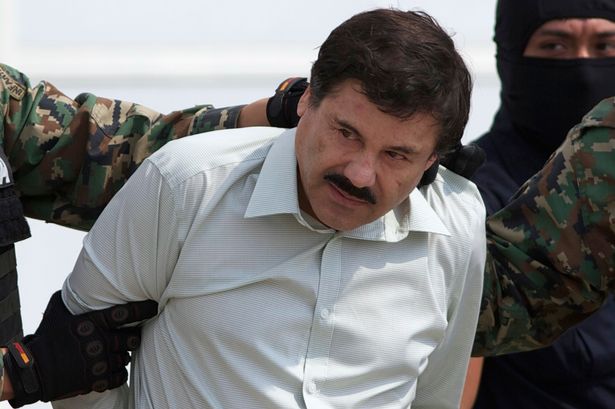World
El Chapo’s Solitary Confinement Raises Concerns Over Mental Health

Former drug lord Joaquín Guzmán, known as El Chapo, is reportedly experiencing significant mental health challenges while incarcerated at ADX Florence, a maximum-security prison in Colorado. His former attorney, Mariel Colón, has raised alarms regarding the conditions of his solitary confinement, describing them as “inhumane.”
Colón, who represented Guzmán for nearly a decade, noted that the 68-year-old is subjected to extreme isolation, which she claims is affecting his mental state. In a recent interview, she stated, “I have known him for nine years. Since he left for Colorado, I go see him twice a month and I talk to him weekly on the phone. I can tell you that I’ve noticed changes that are a little strange and well, they’re a little worrying.”
The attorney elaborated on the harsh conditions, indicating that Guzmán is confined to his cell for 24 hours a day, seven days a week, without any access to sunlight or human interaction. She stated, “The American government has him in inhumane confinement conditions, not letting him out of his cell.” This level of isolation, she argues, is detrimental to his well-being.
Colón further emphasized that Guzmán is prohibited from accessing the prison library, engaging in work, or socializing with other inmates or staff. “In other words, they give him food through a small door. There (in his cell) he eats, there he bathes, he doesn’t leave those four walls,” she added. The only human contact he receives occurs when he is handcuffed for meetings with his legal representatives.
Reports suggest that U.S. authorities enforce these stringent measures due to Guzmán’s history of prison escapes, with sources indicating he spends only three hours each week outside his cell. His communications, including calls, letters, and visits, are tightly regulated to maintain security.
Since his conviction in 2019 on charges including running a continuing criminal enterprise and multiple drug trafficking offenses, Guzmán has filed several petitions with the court to ease these confinement restrictions. Despite his efforts, the conditions remain unchanged.
The Federal Bureau of Prisons has not responded to inquiries regarding Guzmán’s treatment and the concerns raised by his attorney. As discussions around prisoner rights and the mental health implications of solitary confinement continue, Guzmán’s case has drawn attention to broader issues within the U.S. penal system.
-

 Entertainment3 months ago
Entertainment3 months agoAnn Ming Reflects on ITV’s ‘I Fought the Law’ Drama
-

 Entertainment4 months ago
Entertainment4 months agoKate Garraway Sells £2 Million Home Amid Financial Struggles
-

 Health3 months ago
Health3 months agoKatie Price Faces New Health Concerns After Cancer Symptoms Resurface
-

 Entertainment3 months ago
Entertainment3 months agoCoronation Street’s Carl Webster Faces Trouble with New Affairs
-

 Entertainment3 months ago
Entertainment3 months agoWhere is Tinder Swindler Simon Leviev? Latest Updates Revealed
-

 Entertainment4 months ago
Entertainment4 months agoMarkiplier Addresses AI Controversy During Livestream Response
-

 World2 weeks ago
World2 weeks agoBailey Announces Heartbreaking Split from Rebecca After Reunion
-

 Science1 month ago
Science1 month agoBrian Cox Addresses Claims of Alien Probe in 3I/ATLAS Discovery
-

 Health4 months ago
Health4 months agoCarol Vorderman Reflects on Health Scare and Family Support
-

 Entertainment4 months ago
Entertainment4 months agoKim Cattrall Posts Cryptic Message After HBO’s Sequel Cancellation
-

 Entertainment2 weeks ago
Entertainment2 weeks agoCoronation Street Fans React as Todd Faces Heartbreaking Choice
-

 Entertainment3 months ago
Entertainment3 months agoOlivia Attwood Opens Up About Fallout with Former Best Friend













